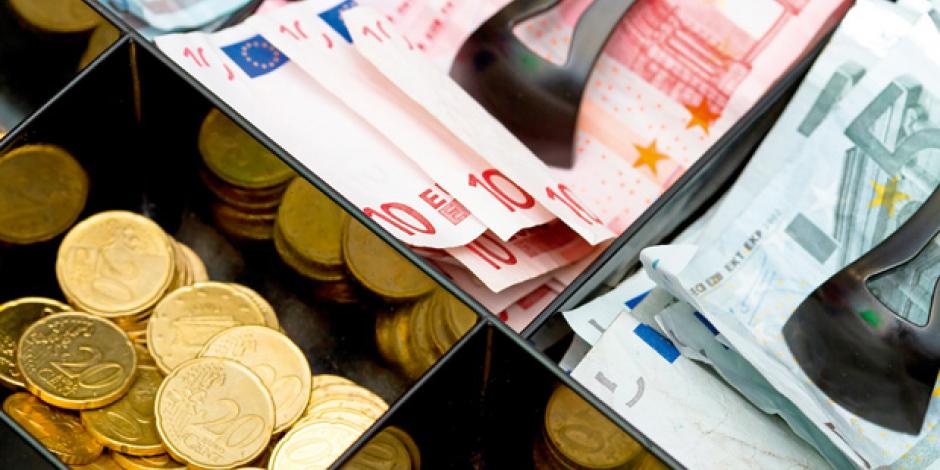Yes
“Electronic payments are convenient.”
(René Thomsen)

Cash is expensive for everybody. This is to be due to sth.auf etw. zurückzuführen seindue to the costs of handling and transporting cash, and because of the security measures that must be taken. Think of all the cash-related crimes and the costs for victims of these crimes.
In Denmark, close to 70 per cent of all transactions are electronic — and the number is rising rapidly. This trend will increase as electronic payment solutions become more widely available, especially on mobile phones. Why? Because electronic payments are convenient and, in most cases, inexpensive for the consumer. For example, the two mobile solutions introduced by Danish banks, Swipp and Mobile Pay, are free of charge for the consumer.
It’s true that digital systems can break down — and we have seen such cases in Denmark. However, they have never lasted long and never have all the payment systems crashed at the same time. For a completely cashless society, better backup systemReserve-, Ausweichsystembackup systems might be needed.
Before introducing a cashless society, we would need to to carry sth. outetw. durchführencarry out thoroughumfassendthorough impact studyAuswirkungsstudieimpact studies on vulnerableverletzlich,
schutzbedürftigvulnerable groups (and also on children, for whom I, as a father, usually spend the limited cash in my walletGeldbörsewallet). However, it surprises me when the the elderlyältere Menschenelderly are used as an example of a vulnerable group. In a highly digitizeddigitalisiertdigitized country like Denmark, older age groups show the highest percentage increase in using digital solutions. It’s only a matter of time before all elderly people find it normal to pay electronically.
However, electronic payment solutions must be found for the most vulnerable, such as the the disabledBehindertedisabled and the the homelessObdachlosehomeless. The Danish Bankers Association is working closely with a range of associations representing the disabled to make sure their needs are met. The EU’s 2014 directiveRichtlinieDirective on Payment Accounts will also ensure that all EU citizens have accessZugangaccess to a basic accountBasiskontobasic account and an electronic payment card.
If you look at developments in the Nordic countries, there is clear evidenceHinweis(e), Beleg(e)evidence that people voluntarily use electronic payment solutions, so it seems they are not worried about the government to monitoretw. überwachenmonitoring their transactions.
However, privacyhier: Datenschutzprivacy is a problem, and the government should not, of course, have unlimited access to transactions. While banks today do need specific judicialrichterlich, gerichtlichjudicial reasons to gain access (at least in Denmark), this access should be restricted even more in a digital future.
René Thomsen heads the department of digitization and financial infrastructure at the Danish Bankers associationVerbandAssociation.
No
“The right to use cash is a key civil liberty.”
(Kevin Dowd)

For many transactions, cash is the ideal form of payment. It is used in 85 per cent of global transactions and for good reason. Cash is a very efficient way of handling small transactions. It doesn’t cost anything and is easy to use. Cash transactions are immediate, flexible and anonymous. Traditionally, anonymity is considered to be one of the greatest benefits of cash. It does not require a password, it can’t be hacked and it is not dependent on technology that might break down.
Most of us have experienced situations in which we had difficulty paying for a bill at a restaurant because of a problem with our debit cardDebit-, Scheckkartedebit card provider. We have then had to use cash. Good luck doing that when the government won’t allow you to.
We should also consider the effect on vulnerable groups. To work as intended, everybody would have to have — and know how to use — the digital technology. Consider the the destitutemittellose Menschendestitute, dependent for their survival on begging. Their very existence depends on cash, and it cannot be expected that they can adapt to a cashless economy and survive. Most don’t even have mobile phones.
A large number of the most vulnerable in our society — the destitute, the the infirm(durch Alter oder Krankheit) Schwacheinfirm and the elderly — would be devastatedzugrunde gerichtet; hier: empfindlich getroffendevastated by the abolitionAbschaffungabolition of cash because they would be shut out of the monetary economy. From this perspective, the proposal to to abolish sth.etw. abschaffenabolish cash is simply cruel. It is hard to imagine any other single measure that would cause as much human suffering.
Once cash has been eliminated and everyone forced to use only government-controlled electronic money, the government would be free to to impose sth. (on sb.)(jmdm.) etw. aufzwingenimpose negative interest rateZinssatzinterest rates. Savers would no longer have the protection of keeping their money in cash. The government could to seizeetw. beschlagnahmenseize their property at willwillkürlichat will and prevent any attempts to escape financial repression.
The right to use cash is a civil libertyBürgerrechtcivil liberty. As politician Ron Paul said: “The cashless society is the IRS (Internal Revenue Service)US-BundessteuerbehördeIRS‘s dream: total knowledge of, and control over, the finances of every single American.” Once the government has forced us to pay for everything electronically, it can also control how we spend our money. We could end up with the government telling us how much we can spend on what, right down to the last digital penny.
Kevin Dowd is professor of finance at Durham University, UK, and co-author of Alchemists of Loss: How Modern Finance and Government Intervention Crashed the Financial System.
Neugierig auf mehr?
Dann nutzen Sie die Möglichkeit und stellen Sie sich Ihr optimales Abo ganz nach Ihren Wünschen zusammen.



